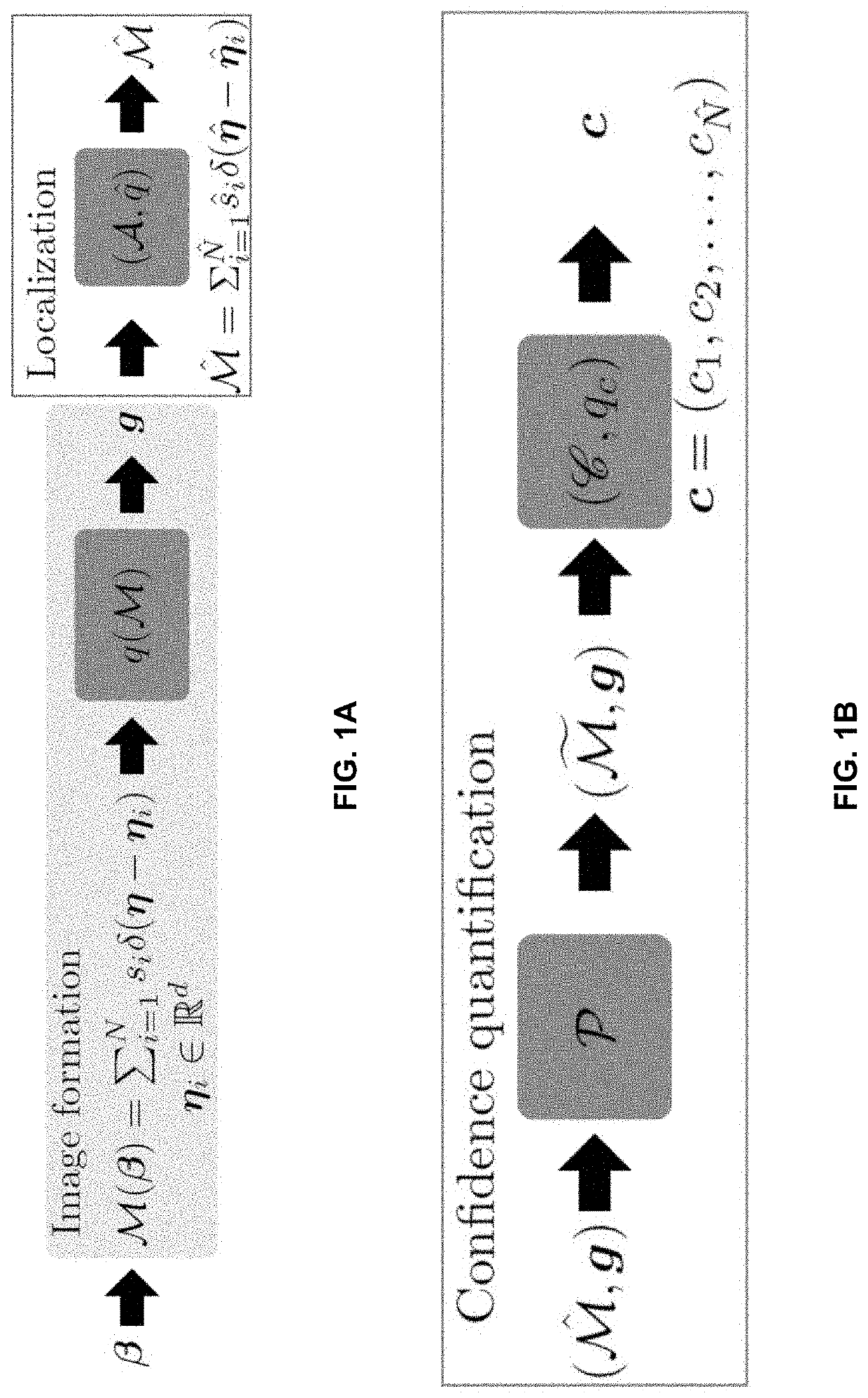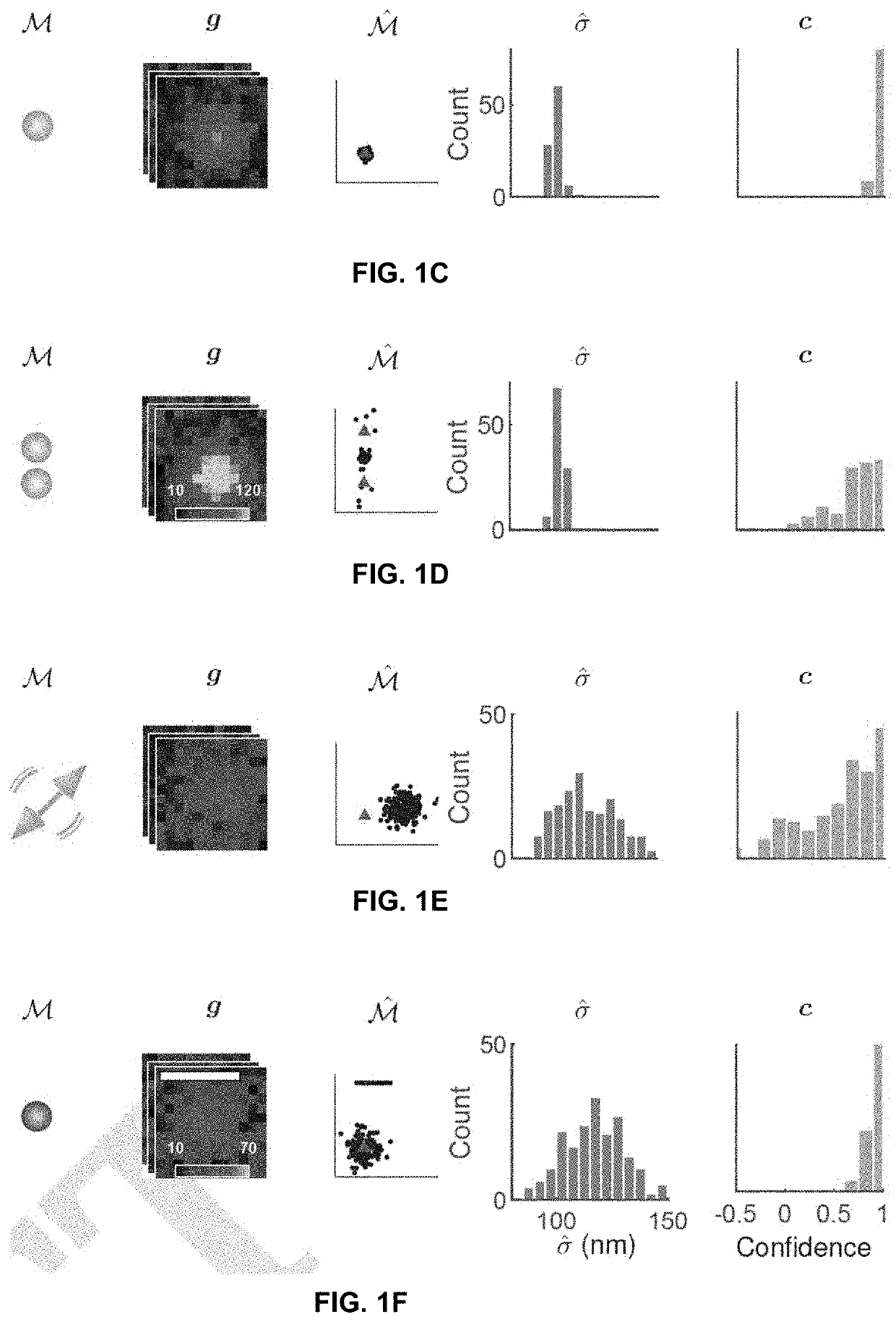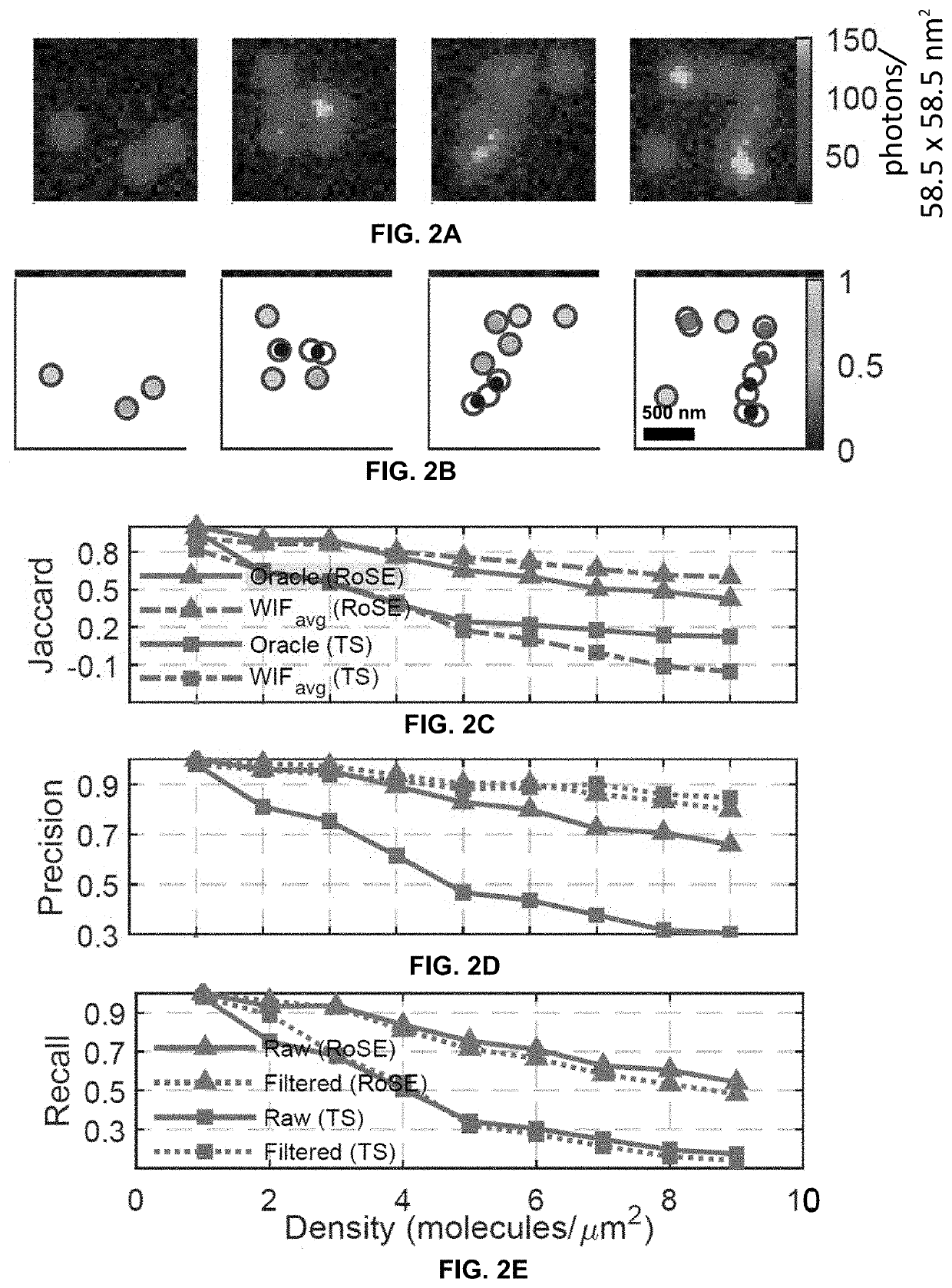Methods for quantifying and enhancing accuracy in microscopy using measures of localization confidence
a localization confidence and microscopy technology, applied in the field of microscopy methods, can solve the problems of limited applicability, low throughput, poor accuracy in low signal-to-noise ratio (snr) datasets, etc., and achieve the effect of enhancing the accuracy of a single molecule localization microscopy datas
- Summary
- Abstract
- Description
- Claims
- Application Information
AI Technical Summary
Benefits of technology
Problems solved by technology
Method used
Image
Examples
example 1
ion Confidence of an Isolated Molecule
[0207]To demonstrate the utility of the disclosed confidence metric, images of fluorescent molecules generated using a vectorial image formation model were analyzed. The images included various hidden physical parameters such as defocus and rotational mobility.
[0208]Using the vectorial image-formation model, a molecule is modelled as a dipole rotating uniformly within a cone with a half angle α. A rotationally fixed dipole corresponds to α=0, while α=90 represents an isotropic molecule. A wavelength of 637 nm and a NA=1.4 was used for the microscope model, a pixel size of 58.5×58.5 nm2 was used for the CCD camera model, and a uniform background was assumed for all images produced using the vectorial image-formation model.
[0209]These analyses characterized not only how well WIF measures mismatches introduced by these parameters, but also its limitations due to statistical shot noise, especially for low photon counts. As a baseline, the PSF model ...
example 2
ng Localization Accuracy without Ground Truth
[0214]A series of camera frames and the corresponding set of localizations returned by an arbitrary algorithm are analyzed as described below to assess the trustworthiness of each localization and to quantify the aggregate accuracy of the said algorithm. Without being limited to any particular theory, this assessment may be interpreted as a game “played” between an oracle who knows the ground-truth positions of molecules and a localization algorithm. In practice, the ground-truth positions of molecules are not accessible. How can the accuracy of estimated localizations be evaluated without these ground-truth positions in hand?
[0215]In various aspects, average confidence is used as a novel metric for quantifying the collective accuracy of these localizations (with confidences {c1, . . . , cN}) according to:
[0216]WIFavg=Δ1N∑i=1NciEqn.[39]
[0217]Insight into Eqn. [39] may be gained by examining its correspondence to the well-known Jacc...
example 3
ng and Revealing Artifacts in High-Density Datasets
[0223]One challenge encountered in high-density (HD) localization, when images of molecules overlap on the camera, is image artifacts that distort SMLM reconstructions in a structured, or vectorial, manner. Constructing an SMLM error map using a reference image has been proposed to certify the reliability of the SMLM reconstruction, but such a map does not quantify the reliability of each individual localization within the image. The power of measuring point confidence in quantifying and revealing artifacts is illustrated in the challenging HD localization experiment described below.
[0224]FALCON, an HD localization algorithm, was used to reconstruct a simulated benchmark SMLM dataset consisting of 360 HD frames of a tubulin network (FIG. 3A). In regions where the tubules coalesce, corresponding to higher blinking densities, numerous inaccurate localizations (FIG. 3A, insets) were observed. In particular, fusion and broadening of tub...
PUM
| Property | Measurement | Unit |
|---|---|---|
| width | aaaaa | aaaaa |
| width | aaaaa | aaaaa |
| half angles | aaaaa | aaaaa |
Abstract
Description
Claims
Application Information
 Login to View More
Login to View More - R&D
- Intellectual Property
- Life Sciences
- Materials
- Tech Scout
- Unparalleled Data Quality
- Higher Quality Content
- 60% Fewer Hallucinations
Browse by: Latest US Patents, China's latest patents, Technical Efficacy Thesaurus, Application Domain, Technology Topic, Popular Technical Reports.
© 2025 PatSnap. All rights reserved.Legal|Privacy policy|Modern Slavery Act Transparency Statement|Sitemap|About US| Contact US: help@patsnap.com



